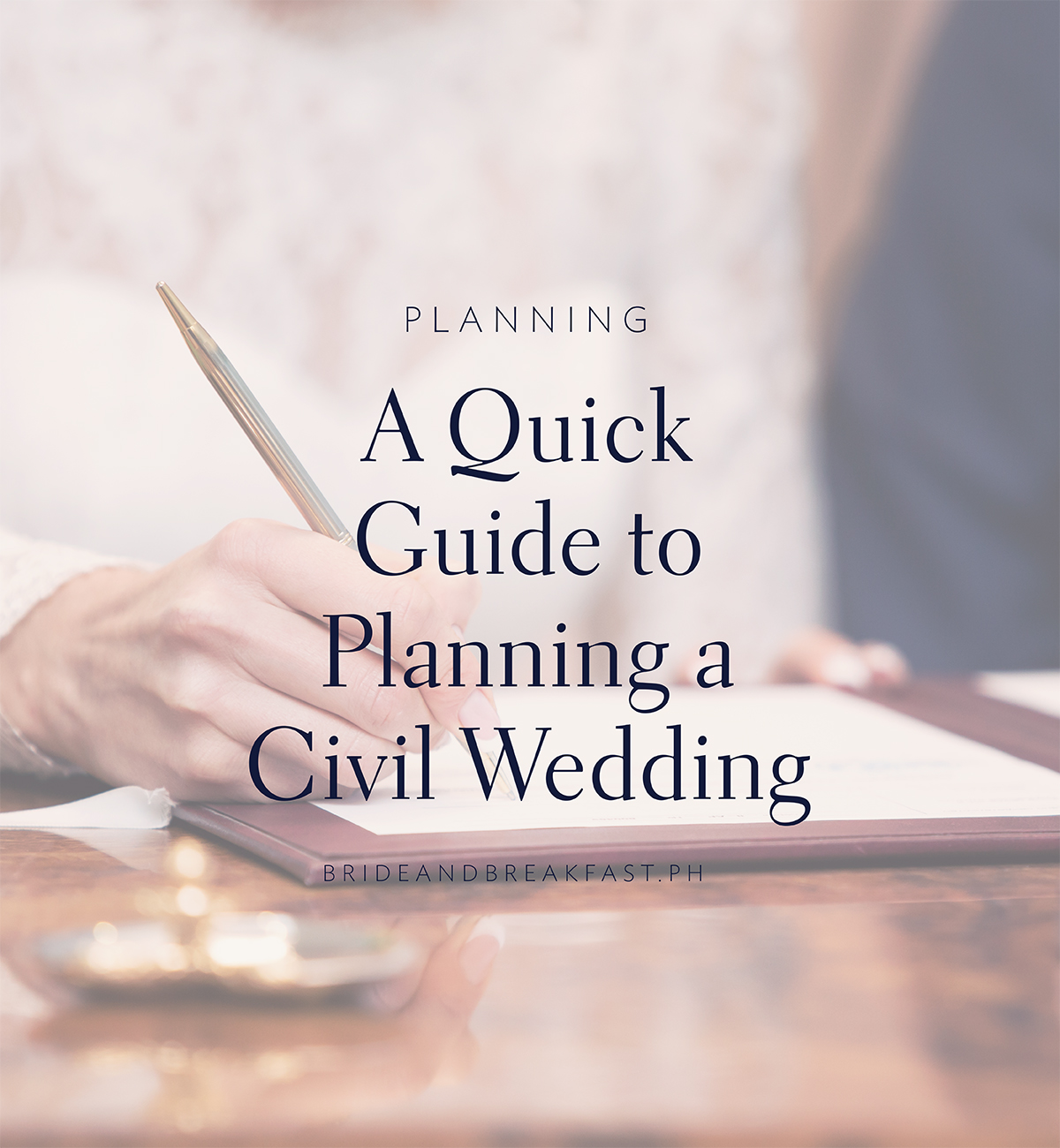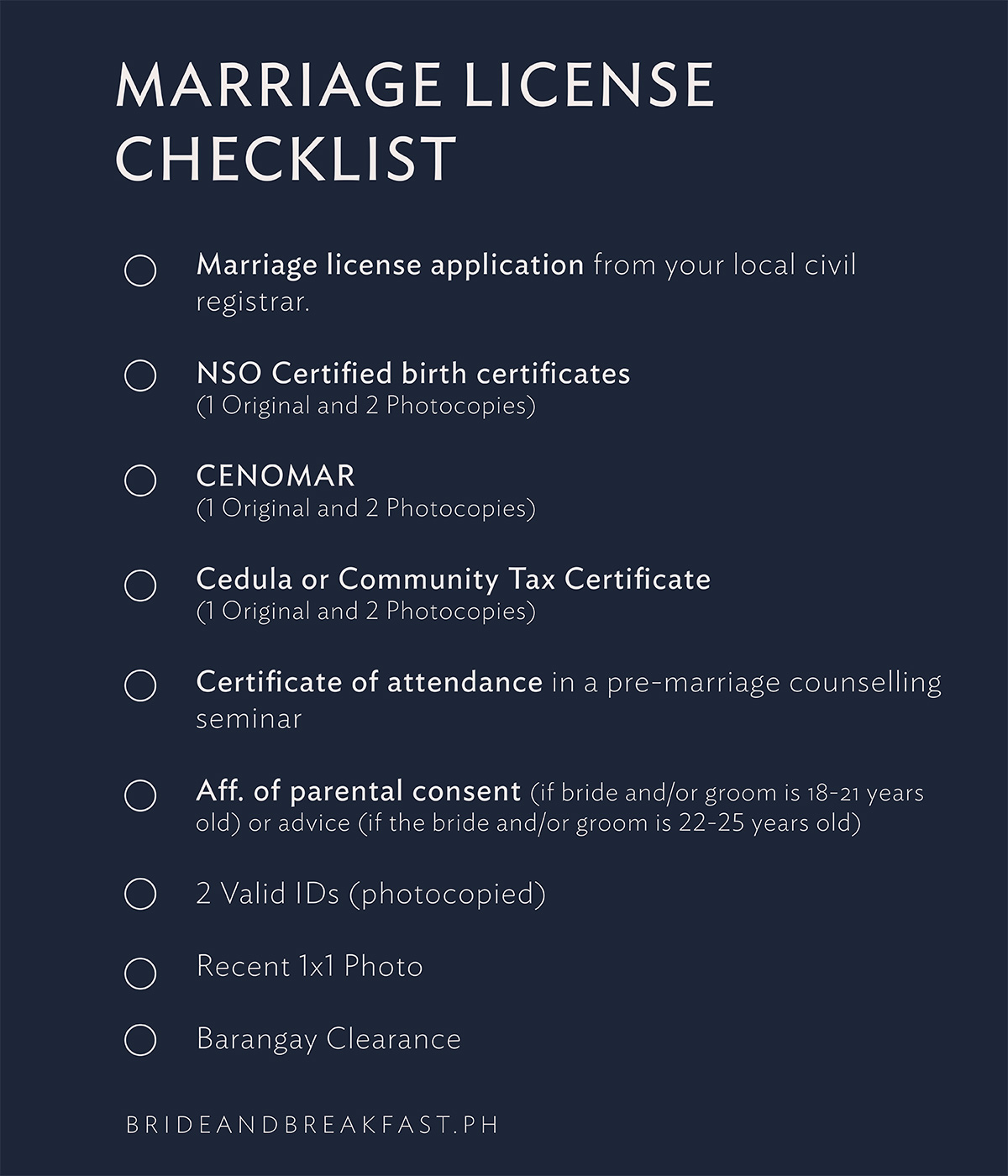There are many reasons–whether practical or personal–why people choose to marry civilly. You may be cutting back on expenses, or perhaps you are pressed for time, or maybe you and your partner are from different religious backgrounds or even not religious at all.
Whatever the reason, civil weddings are a legitimate option for those seeking to join together in marriage, reap the benefits that the State offers married persons, and of course to publicly declare your commitment and love for one another.
Here’s a quick guide to understanding civil weddings and how to go about putting one together.


Yes, as legal as it gets. As long as you comply with the requisites set forth by law, a civil wedding is binding, recognized by the State, and allows you to avail of the legal benefits of marriage (tax benefits, medical care, etc.). Religious ceremonies, which we are most accustomed to witnessing and attending in the Philippines, are not automatically legally binding and still require a marriage license to legally bind the marriage.
The essentials to make a civil wedding legal? Capacity, consent, authority of the person performing the marriage, and a marriage license. You will also need two witnesses to be present at the ceremony and to sign the marriage certificate.

In the Philippines, the following persons may officiate a civil wedding:
- The Chief Justice and Associate Justices of the Supreme Court
- The Presiding Justice and the Justices of the Court of Appeals
- Judges of the Courts of First Instance
- Mayors of cities and municipalities
- Municipal judges and justices of the peace
- Priests, rabbis, ministers of the gospel of any denomination, church, religion, or sect who are duly registered
- Ship captains, airplane chiefs, military commanders, and consuls and vice-consuls in special cases (marriages on the verge of death and marriages between Filipino citizens abroad)
Most commonly, municipal and city judges or mayors will preside. Unless you have a specific person in mind, your local civil registrar will assign an officiant to you based on your requested wedding date and the availability of the officiant.

Civil weddings must be held in a public place. Most often they take place in the presiding judge’s chambers, or in the mayor’s office.
It is possible to have the wedding in a place of your preference, especially if you prefer to marry on a weekend (when government offices are closed). Your officiant will likely demand a higher fee for this.

These are the technical steps to take in preparing for your civil wedding:
Step 1: Apply for your marriage license
You can apply at the Civil Registrar’s Office of the municipality or city where either you or your partner reside. Here is a checklist of the documents and items you will need for your application:

Step 2: Pay the necessary fees
These can vary from city to city, but are never exorbitant.
Step 3: Pick a date for your wedding
Note that the marriage license is only valid for 120 days (4 months) from the day it is issued, so don’t apply too far ahead of your wedding date.
Step 4: Inform and invite your two witnesses
Make sure that both of them are available on the date of your civil wedding. You can also assign back up witnesses just in case the original ones you assigned suddenly can’t make it.
Stay organized with your documents and this preparation phase will go by extremely fast. Some more minor requirements may vary depending on the city where you will marry, so try to call ahead if you can find their contact number. For example, many cities require that you and your future spouse submit the application for marriage license personally and together— no proxies allowed. Asking the right questions ahead can save you some time and energy.

While civil weddings are popular because of the relatively low costs and “express service,” that doesn’t mean you can’t make them personal by adding elements of your own. You can choose to bring in elements from more traditional or religious ceremonies, such as wearing a white dress and carrying flowers. You can also choose to do away with all that and wear a unitard while carrying a pumpkin in your arms if that suits you! You get the picture.
If anything, the total freedom of choice can be a bit daunting. Often we’ll see civil weddings that look a lot like your typical religious weddings anyway. The key is to go with what suits you and makes you happy on your special day. Enjoy making it a personal expression of you and your partner’s love.
It’s true that a wedding doesn’t have to be showy, complicated, or expensive to be beautiful. It just has to be your own.









